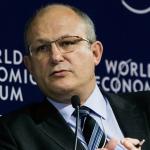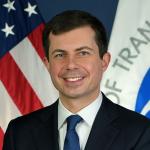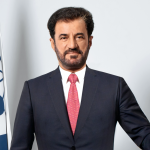Title
Transport as a catalyst for inclusive societies
Plenary
Mohammed Abdeljalil, Minister of Transport and Logistics of Morocco, stressed the need for inclusion to be a key aspect that guarantees access to opportunities. Inequalities, which were exacerbated during the pandemic, need sound policy making to help tackle them. The pandemic has also brought new habits for passenger and freight transport, and this Summit would serve as a useful platform to address these changes, enabling more inclusive transport systems.
Minister Abdeljalil pointed out that the digital gap was worst for those who did not have access to digital tools and questioned how we could bridge this gap; equitable access to transport services was essential in bringing people on board. Forecasting for future developments was key to this. Everyone should have the possibility of moving to their place of work, especially in rural areas; mobility should not be a luxury good.
Volker Wissing, the German Federal Minister of Digital Affairs and Transport, outlined Germany’s simple online platform for buying tickets. Increasing energy prices provide the opportunity for increasing societal enthusiasm around public transport. Ensuring that public transport is affordable, accessible and innovative was key to providing an attractive offer for all. This meant further developing tailor-made services and on-demand services. Autonomous vehicles were becoming the norm, and sound legal frameworks would help to provide this. Combined with innovative transport, digitalisation will improve people’s lives.
Young Tae Kim, Secretary-General of the ITF, highlighted Morocco’s Presidency of the ITF as historic - the first African presidency of the ITF. The Secretary-General outlined the defining crises of our time; the pandemic and the war in Ukraine. Around the world, the social fabric has become thinner with fewer things seeming to unite us, with an increasing number of issues appearing to divide us. However, the power of transport and its links with education can serve as a uniting force by bringing people together, noting that physical mobility is often closely linked to social mobility.
Pete Buttigieg, United States Secretary of Transportation, discussed the power that transport can have to either empower or isolate. How can we identify challenges for access? How do we bridge access gaps? He stated that in parts of Chicago, citizens who do not have a private car can take up to one hour in travel time to work. Secretary Buttigieg outlined how technology contributes to the rise of distracted driving but that it can also be a way to solve safety issues, of which some of the best ideas for improving safety will come from the local level.
Vivianne Heijnen, Minister for the Environment of the Netherlands, outlined the importance to explore the needs of people who were not already considered in our current transport systems. The Netherlands was conducting research in countering transport poverty, ensuring that everyone is included in the transition. Local politics were key to ensure that they are in touch with people who need extra attention. It was the responsibility for politicians to ensure the voices of those who cannot speak for themselves were heard.
Minister Heijnen stated that the Netherlands had provided grants for electric cars and trucks. However, she also noted that people may not feel included if they could not afford an electric vehicle, even with a grant. She outlined that policy makers should look for ways to stimulate the purchase of second-hand electric cars. Placing an emphasis on electric bikes, she noted that these increase the radius for people in rural areas and help people reach other transport modes. The Netherlands was running programmes so that every child can have a bike and knows how to drive them while simultaneously investing in bicycle infrastructure.
Merav Michaeli, Israeli Minister of Transport, underlined that the main question was how do we ensure that transport enables everyone to get to where they want to be in their lives? She highlighted that we need to look through the lens of different groups in society which use transport. In Israel, Minister Michaeli outlined the work on closing the gap for the Arab society in Israel. Work was being conducted to ensure safe vehicles for every woman and child. She noted how Israel was at the forefront of technological advances in the transport sector. Using these achievements to make sure that all society is included was key. She considered regional collaboration to be the future; transport is key to connect to our current and future partners.
Regarding safety, Minister Michaeli stated that governments need to understand the alternative cost if safety is not taken into account. The most important thing is to invest in ensuring a professional service through a driver. With higher amounts of people using public transport, the greater the safety benefit we have. It is also important to invest into freight drivers and provide more attention to this area. Minister Michaeli noted that it was important to invest in the education system from the beginning.
Mohammed Ben Sulayem, President of FIA, outlined that accessibility and affordability were key to bringing people on board. Synergies between motorsports and mobility mean high technological advances for society, which is something Formula 1 has helped to develop. We now have a third generation of Formula E, and by 2026, FIA is aiming for sustainable fuels in all disciplines of motorsports. He ended by elaborating that FIA would therefore make sure that it was leading, rather than being reactive.
Julia Simpson, President and CEO of the WTTC, stated that during the pandemic, the travel and tourism sector lost 62 million jobs, which resulted in particularly high losses for women, and families led by women. Inclusion starts in ensuring that people can work and have dignity in work, of which transport is a key part of that. The focus for the next 10 years is recovery and potentially adding 126 million additional jobs in the tourism and adjacent sectors. The transport sector will experience higher growth than the global average; the main question is how can we do this in a sustainable manner? One of the issues is going to be the scalability of producers. The WTTC will publish a net-zero report evaluating the sector with a data-driven approach with the ability to track it for each individual area.
Antonio Silveira, Vice-President of the CAF, outlined that connectivity can be thought of in terms of inclusion but also exclusion. Being holistic and ensuring we bring people in is key to long-term success. Giving a voice to all people to include them and inform best practice are crucial. South-South co-operation is also vital for global development, looking at the commonalities between countries and regions, building solutions and partnerships.
Speakers

Antonio Silveira
Vice President, Physical Infrastructure and Digital Transformation
Development Bank of Latin America (CAF)







